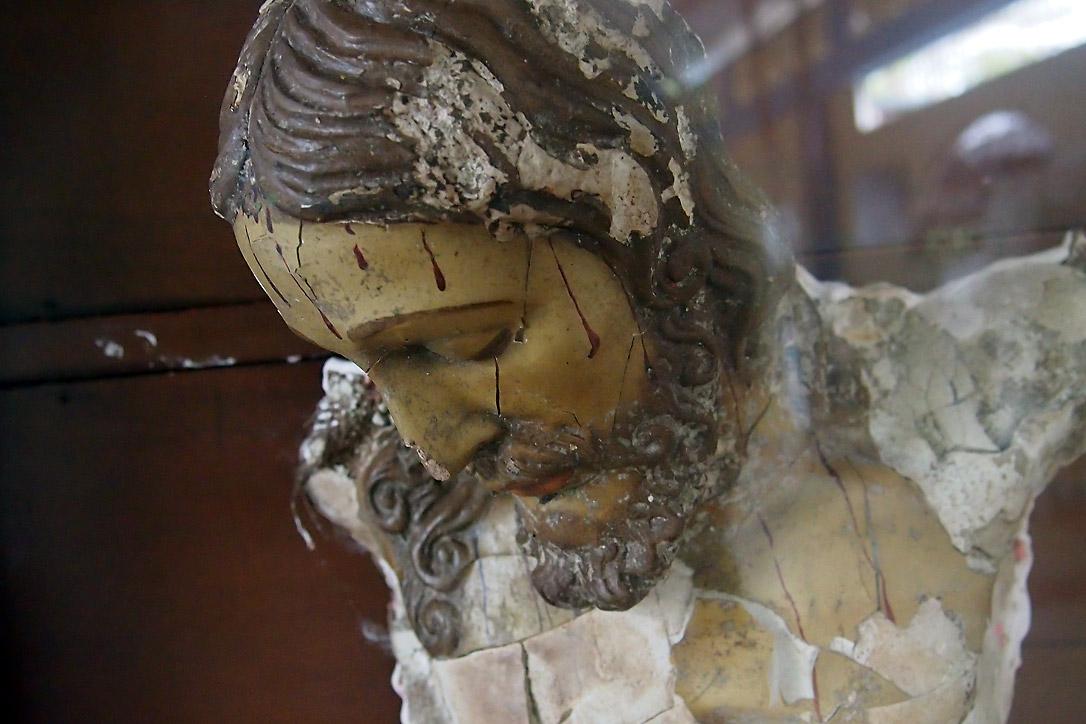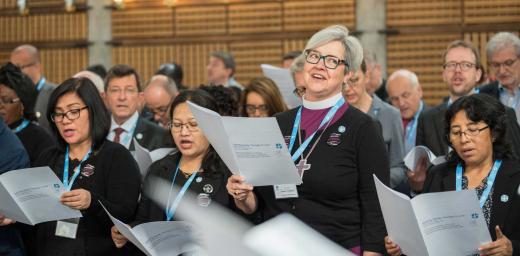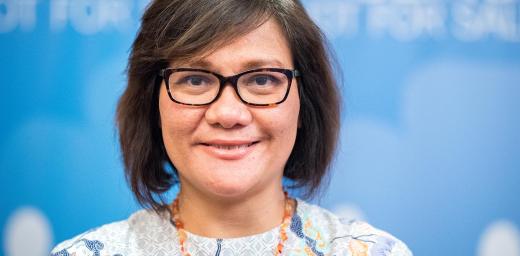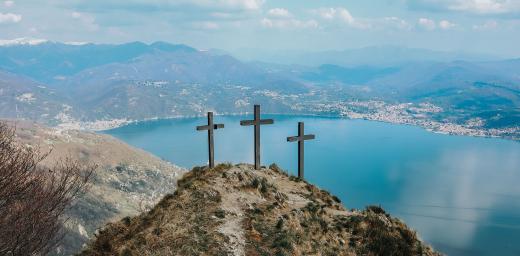God’s compassionate embrace

Christ of Bojayá, Colombia. Photo: LWF/Kaisamari Hintikka
"Father, forgive them, for they do not know what they are doing." (Luke 23:34)
I have often wondered about this generous prayer by Jesus. Of course they knew what they were doing. Jesus’ crucifixion was about silencing him. It was about putting an end to his message of justice, compassion and solidarity. It was about rejecting the new life offered by God through Jesus Christ, in order to hold fast to the disorders of old sin.
Looking at the powerful symbolism of the cross of Bojayá in Colombia, however, I have seen something new. Because Jesus was crucified with his arms wide open, his message and ministry were unintentionally affirmed and underlined: Christ stands for God’s compassionate embrace. Christ dies because of God’s outreach to the lost, broken and wounded. His arms, wide open, are God’s arms wide open, ready to heal, to bless and to restore.
Indeed, they didn’t know what they were doing.
The same irrational violence that crucified Jesus ended up blowing away the arms of the crucifix at the chapel of Bojayá. A bomb that hit the chapel took the lives of many villagers who had sought refuge from a fierce battle between opposing factions and wounded others. It partially destroyed the crucifix. Only Jesus’ torso remains.
Father, did they know what they were doing?
But the heart remains. God’s heart continues beating. And the head remains. God’s mind continues envisioning the world as it is intended to be. Crucifixion and resurrection meet in the crucifix of Bojayá. Despair and hope, irrational violence and unbroken love, the power of evil and the resilience of good are all represented in the crucifix, almost touching each other, and hence telling so much about daily life experiences of humankind.
That heart of the crucifix of Bojayá, unbroken and beating for justice, compassion and solidarity, and the mind, creatively envisioning the world as God wants it to be, are both looking for arms and hands to continue expressing God’s embrace in our world. They are waiting for communities of the baptized the world over to hear the call to God’s mission and to engage in God’s work of transformation, reconciliation and empowerment.
Father, give us your Spirit, so that we know what we should do.
Rev. Dr Martin Junge, LWF General Secretary





